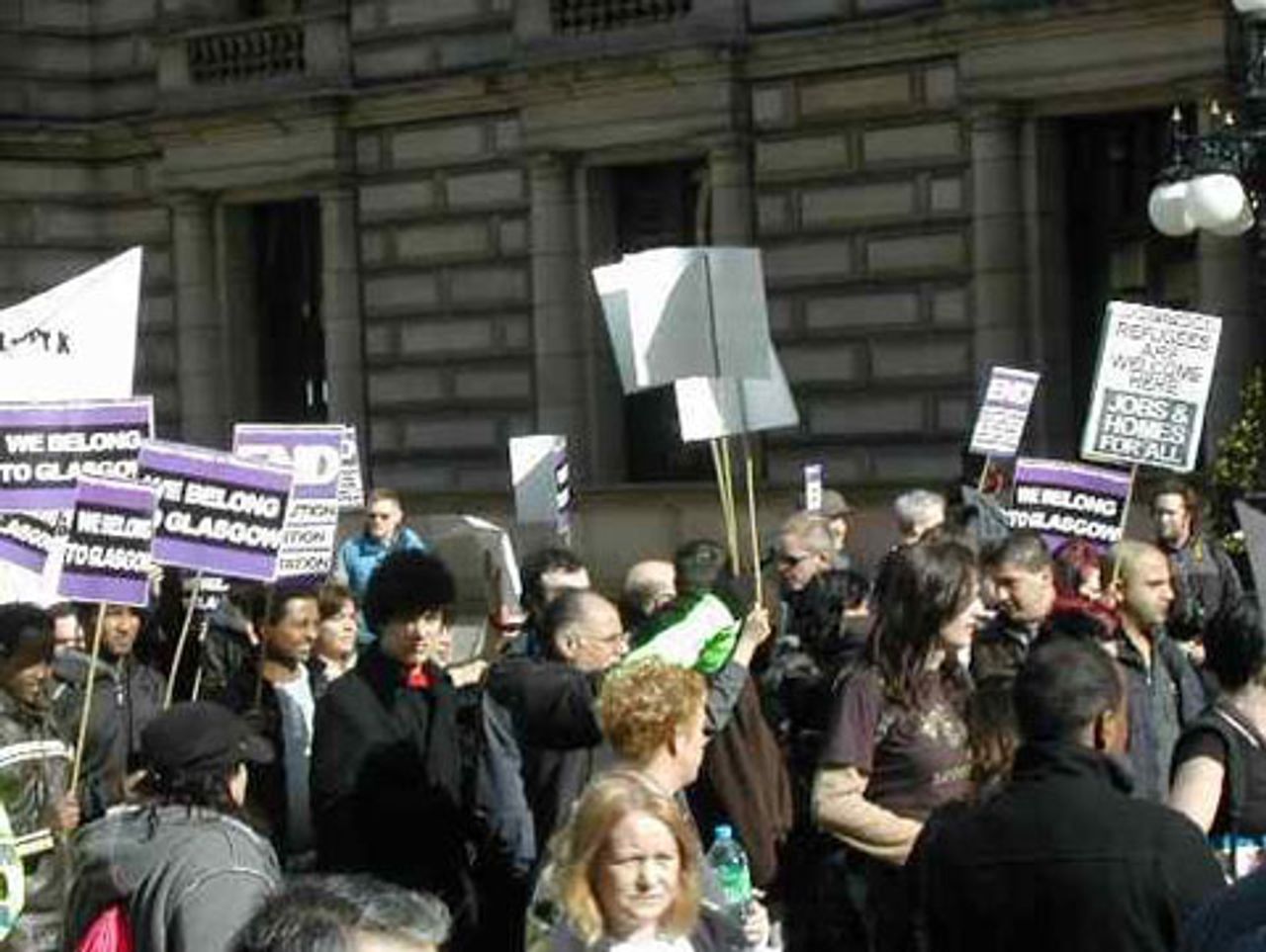Hundreds marched in central Glasgow March 13 to protest the deaths of Serguei Serykh, his wife Tatyana, and stepson Stepan the previous week. The Russian family threw themselves from the 15th floor of a tower block the previous week, following the UK Borders Agency’s (UKBA) rejection of their claim for asylum. Facing deportation or destitution, the family chose to take their own lives.

The tragedy has had a particularly shocking impact on residents of the Red Road flats, where the family were staying, many of whom are also asylum-seekers. It has once again highlighted the terrible, drawn-out and frequently fatal pressures confronted by those seeking to navigate their way through the UK’s brutal asylum policy.
People from a wide range of age groups and backgrounds attended the demonstration, including current asylum-seekers, students and members of various support and protest groups. The demonstrators demanded an end to “Destitution, Detention and Deportation,” while other placards called for “Freedom from Fear.”
Although the march went through George Square in central Glasgow, it was directed away from busy shopping streets and forced to rally in a rather crowded and isolated spot some way from the city centre, while a helicopter hovered nearby.
There were a number of political and trade union speakers. The weakness of their remarks stood in contrast to the shock and horror generated by the suicides, and the urgency of the situation confronting many thousands of people. To the extent any proposals were put forward, they resolved to calling for pressure to be placed on the Scottish Lord Advocate to concede a Fatal Accident Inquiry, and vague calls for a “fairer” asylum system.
A speaker from the Scottish Trade Union Congress was given the microphone first by the demonstration organisers. Notwithstanding the trade unions’ refusal to spend a fraction of their immense resources in defence of the most vulnerable sections of society, he claimed to stand by the principle “an injury to one is an injury to all.”
Patrick Harvie, co-convenor of the Scottish Green Party and member of the Scottish parliament (MSP), and recent dinner guest of Prime Minister Gordon Brown, complained that asylum policy was a “compassionless human stock-taking exercise.” The opportunity to change this was, however, “limited” and only within Scotland. To this end, Harvie called for a Fatal Accident Inquiry to investigate broader aspects of asylum policy.
“I wish we could rally in celebration of a fair asylum system, I wish I could say it would be a short and rapid journey towards that. I think it will be a long journey,” he said.
Anne McLaughlin, Member of the Scottish Parliament for the ruling Scottish National Party (SNP), has been involved in a number of campaigns to assist individual asylum-seekers avoid deportation. She noted that she was aware of “many, many families facing similar circumstances, and many people who have kept suicide as an option.” McLaughlin’s main point, however, was to claim that the SNP’s anti-Trident missile policy would free up resources that could be spent on giving decent conditions for asylum-seekers.
Behind the posturing of both parties as defenders of asylum-seekers lies their support for Scottish independence and their intention to increase the powers of the Scottish parliament. Both claim a future independent Scotland would operate a more liberal asylum policy than the United Kingdom. In fact, as the SNP have repeatedly made clear, both parties’ differences with the UK Labour government over asylum and immigration policy stem from the perception amongst section of Scottish business that the labour market is significantly short of cheap and skilled labour.
A recent Scottish government document entitled “Europe and Foreign Affairs,” part of the SNP’s “National Conversation” to promote independence, noted that a “Scottish asylum system could be operated to allow asylum-seekers to work in Scotland while awaiting results of their claim and, where appeal rights had been exhausted, claimants with scarce skills could be granted leave to remain if their employer undertakes to continue to employ them.”
In short, asylum, according to the SNP is not a fundamental human right but an expedient policy dependent on labour supply.
